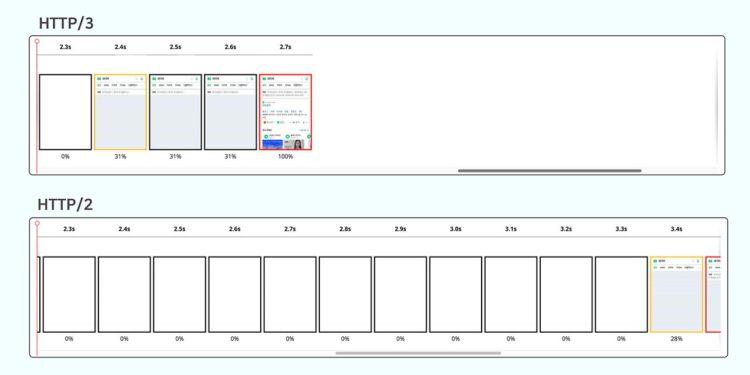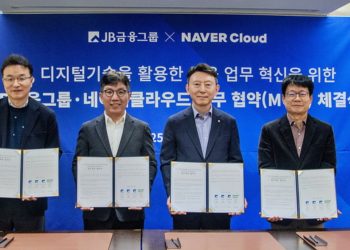Korean internet giant Naver introduces HTTP/3, next-generation web communication, to its platform search service. HTTP/3 is a third-generation standard protocol for exchanging data between apps/browsers and the web.
In June 2021, the International Internet Technology Committee (IETF) established HTTP/3 as a next-generation web communication standard protocol. Naver introduced HTTP/2 in 2015, the first among domestic platform operators. Naver Search expects to provide a faster and more stable search service than before by introducing HTTP/3. HTTP/3 shortens the initial connection time between the browser and the web server, reducing the time it takes for web page data to reach the user. In the Naver mobile app/web or PC browser where HTTP/3 was introduced, the search page is implemented more smoothly than before.
As a result of testing by introducing HTTP/3 into a relatively slow (3G) network environment, the first data arrival time ranged from 2.3 seconds to 1.8 seconds, and the time to initially display the search result screen on the web page went from 3.4 seconds to 2.4 seconds. It was found that the required time was reduced by about 23% and 29%, respectively, in seconds.
In particular, compared to the existing HTTP/2, HTTP/3 has the advantage of more stable search results exposure even in network shadow areas or areas with relatively weak radio waves. For example, even in a place where a mobile network is not smooth, such as an elevator or a tunnel, search results can be more smoothly delivered to the user. A more evident difference is seen in 3G or overseas environments with high network latency. Existing HTTP/2 takes 2 or 3 additional traffic from the initial connection request to transmission, but HTTP/3 is a method that allows actual data transmission at the same time as a connection.
Naver Search is currently piloting and operating HTTP/3 for some users. After beta testing for a certain period, it plans to expand the application of HTTP/3 to all users within the year. “HTTP/3 has already been rapidly adopted by various global platform operators and is becoming a global standard,” said Kim Jae-heon, head of Naver Search CIC.







